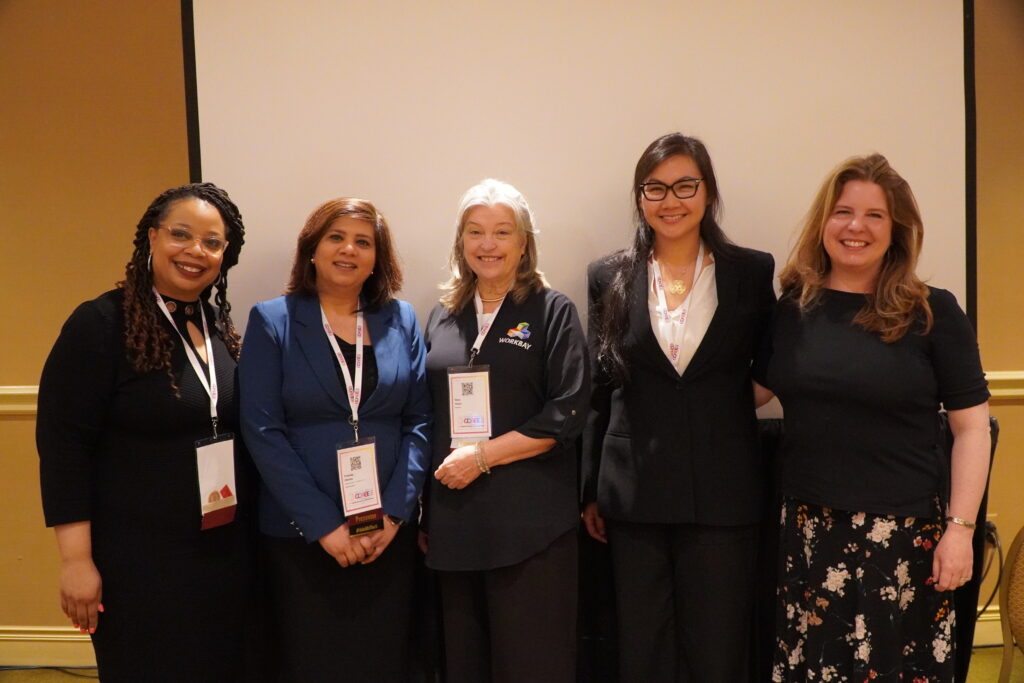Each year, educators from across the country gather to discuss how to best serve adult learners. Hosted by the Coalition for Adult Basic Education, the COABE National Conference is the largest annual meeting of adult educators, program administrators, and other adult education community members.
The Future Finder Challenge team traveled to Nashville, Tennessee, to participate in this year’s conference and share innovations and insights from the challenge. The conference sessions covered everything from Integrated Education and Training (IET) programs to justice-impacted learners — but a consistent theme that emerged across panels was the importance of digital literacy for learners and educators alike.
Adult learners and digital career navigation

Beginning with an early-morning session, Gladeo co-founder and CEO Michelle Cho, and Workbay co-founder and President Alice Hayes, each took the floor to give an overview and demonstration of their career navigation platforms. Both emphasized that the best digital tools are designed not to change the way educators support learners, but to integrate with and help enhance the work educators are already doing.
Michelle Cho, along with Workbay co-founder and CEO Mary Hayes, then joined Priyanka Sharma, Vice President at World Education, and Amber Gallup, State Director of Adult Education at the New Mexico Higher Education Department, for a panel discussion about the present and future of career navigation for adult learners. The discussion was moderated by LaToya Newson, Director of the Division of Adult Education and Literacy in the Office of Career, Technical, and Adult Education (OCTAE) at the U.S. Department of Education.
The panelists acknowledged there is a real opportunity for innovators to support educators and learners alike with thoughtfully designed digital tools. But they agreed that any entrepreneurs — especially those new to the adult education ecosystem — will benefit from a collaborative mindset and an openness to learn from those with adult education expertise. And while there is plenty of excitement for emerging technologies like AI and VR, they represent only part of the solution. No technology can — or should — replace the relationship between a student and teacher that lies at the heart of adult education. And, as with many sectors, adult educators and practitioners will need support if they are going to effectively leverage tools like AI and VR — particularly as they consider how to best use them to meet the unique needs of adult learners.
Digital literacy resources
Educators eager to develop their digital literacy and support adult learners in doing the same can explore numerous available resources:
- Adult Literacy & Education Resource Collection from the Literacy Information and Communication System (LINCS), an OCTAE national leadership initiative
- Adult educator resources from COABE
- Digital equity and inclusion resources from World Education
- Digital literacy resources from the Barbara Bush Foundation
- Digital career navigation resources curated by the Future Finder Challenge
